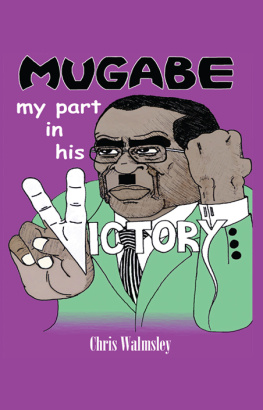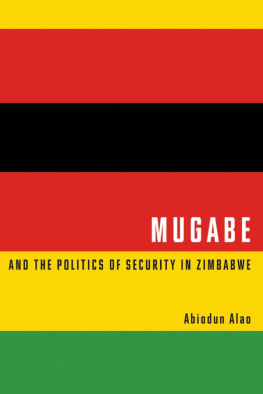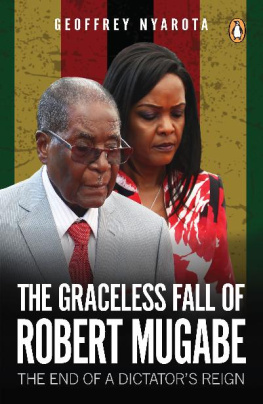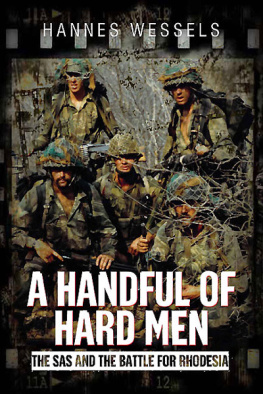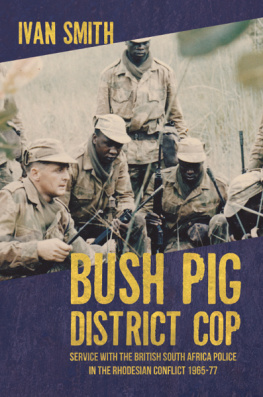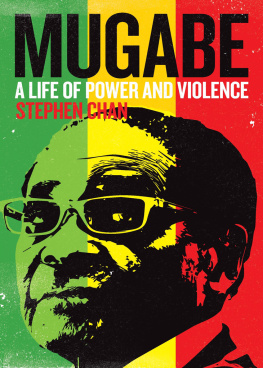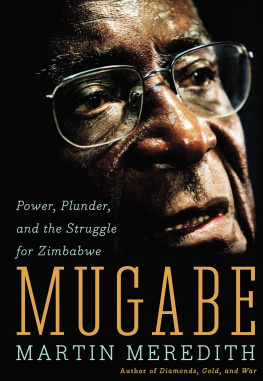

Dedication
To Anthony (Shorty) Carr, Paul Crouch and
Peter Gradwell for the sacrifice.
To Ian (Tubs) Walker for the laughs
Introduction and Acknowledgements
When our university decided to convene a reunion in 2010 cheerfully entitled Knocking on Heavens Door it was appreciated that this had come too late for some. As it was now many years since most of us had been at university in the nineteen sixties and seventies and the years had taken their toll, we were invited to write obituaries for those who would not be there.
That should have been a fairly simple task even for someone who had not written an obituary outside of our family before. I soon realized I faced two major problems. Firstly, it was very difficult to think of my friend without laughing. This joyous, rotund human being had never let the world, much less Mugabe, get him down. Secondly, there was too much to say. An obituary needed context and context implied a book.
I also had family reasons for writing the book. It had always been important to me to know what my grandparents and parents got up to particularly as they had all survived world wars. Just in case one day some descendant happens to enquire along the lines- Wasnt granddad in a war in Zimbabwe when it was called something else?- then at least there would be a book available for them to read.
It is possible and probable that an inaccurate and unreliable memoir will fail as a tribute to fallen friends and as a faithful representation of what I got up to for my descendants. If you require a turgid, detailed sanitized account of what went on in the country there are lots of those available. This book is to celebrate the past not to wax political. National service in war time does have its sad, gruesome, dangerous moments. These are far outweighed, however, by the fun, laughter, friendship bonds and happy memories. It is in the spirit of those that this book is written.
Place names have been extensively changed after the demise of Rhodesia. I have used the names which were in force at the time but usually mention the new names. Many of the original names were already derived from the vernacular so have only been changed in a small way (for example: Inyanga to Nyanga; Gwelo to Gweru; Umtali to Mutare) but English names have been replaced. My home city of Salisbury named after an erstwhile English political person was renamed Harare after an African person. Harare was the Zimbabwean equivalent of Hereward the Wake in English history. Hereward the Wake was another guerilla fighter (against the Normans) but Harare was watchful and aware of the enemy because he occupied a high hill which gave him defensive capabilities. I know the hill intimately as not well meaning prefects made us run up and down it barefooted when I was at school. This form of sadism was commonly known as athletics training at the time. We also used Harares hill to test the top speed of our bicycles which was made more exciting and exhilarating by defective brakes and heavy traffic at the bottom. The name is a contraction of ha-a-rare or he-who does not sleep as the chief was never caught napping by the enemy.
The country also changed its name from Rhodesia to Zimbabwe. Zimbabwe (houses of stone) refers to the granite fortress made without use of cement in the area around Fort Victoria now renamed Masvingo. Ironically both spellings of Zimbabwe and Harare have not been corrected and continue in their European rather than Shona form. Perhaps Mugabe was determined to be the last name in any list of countries!
African names such as Nyanyadzi, Buhera and Bulawayo have endured unchanged.
Human names have been changed to protect feelings of inadequacy, incompetence or detailed questioning by spouses. Robert Mugabe and Ian Smith keep their own names as do colleagues killed in action such as Paul Crouch, Shorty Carr and Leroy Duberley. Other civilians killed such as my university friend Peter Gradwell and the wonderful Elim Pentecostal missionaries I met also take their own names. All other names bearing similarities to persons dead or alive are entirely coincidental and I am told that is a strong defence in a court of law. Be warned.
The word terrorist (as in Police Anti Terrorist Unit) was commonplace at the time rather than guerilla. The forces of Mugabe and Nkomo sought to help the local so-called Africans (being a bit darker brown than the so called Europeans) to see the light (politically) by fairly direct means. They would, for example, rape a mans wife several times for good effect in front of him, bayonet his baby and then slowly bludgeon the man painfully to death. This method of political persuasion by a quirk of western values I choose to refer to as terrorism and the perpetrators terrorists. I feel the same way about civilian aeroplanes being struck down by surface to air missiles. It is the phrase commonly used throughout this book. If you are reading this introduction while standing in a book shop and have as yet not paid and are offended by my use of the word terrorist this is probably a good time for you to replace the book and look for another. If you have already paid you should try to get your money back. If you are technologically competent and have the electronic version then go to the word change command and change all references from terrorists to guerillas. That will include changing the acronym from Police Anti Terrorist Unit, in which I served, from PATU to PAGU.
This has not been a solo effort. A fast failing memory has been considerably assisted by the detailed diary notes of Tim Broderick, the scanty thoughts and recollections of police colleagues Julian Pellatt, Tony Granger and Dave Parkin. My memories of Rhodes University have been well served by Mike Ferrar, Mervyn Wetmore, Lu Dowell, Geoff Antrobus and Sharon Tweddle. The cover, graphics and proof reading have been left to Dominic Weakley. None of them should blame themselves for how the book has turned out.
The title was inspired by the frail attempts of Spike Milligan to overcome Hitler in Adolf Hitler My part in his downfall. Both Hitler and Mugabe had much in common besides ridiculous moustaches. Hopefully I will be sufficiently inspired to write the sequel Mugabe-President who? Rest in peace Spike you gave me many laughs.
Robert Mugabe was victorious and swept to power in 1980. Since then he has squandered the fruits of victory and what he called the jewel of Africa has lost much of its lustre. If we sob into our beers thinking of what might have been he remains victorious. If we do not let the world forget the plight of those suffering the deprivations of contemporary Zimbabwe but also strengthen our bonds of friendship and rejoice in our happy memories, he loses.
I raise my tear diluted beer glass to you all and thank you for buying my book.
C HAPTER O NE
Knocking on Heavens door
Johannesburg, South Africas largest city and financial capital, is not a fun place to be in winter. Summer, spring and autumn are not great either but winter, particularly at night, is nippy. So the choices are limited. One can, of course, go out for a stroll to test ones self defence skills against muggers because there are usually plenty of those around, or else leave the gate open and take bets on how long it takes for all your worldly valuables to be relocated to the southern suburbs. Far better though, you can invite some mates around for deeply philosophical conversation and reminiscing about the good old days accompanied by the best that the South African Breweries can offer.
Next page
